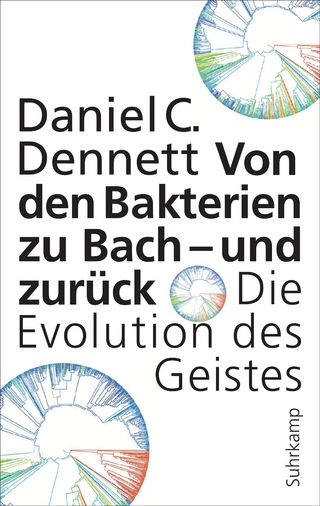
The Routledge Handbook of Linguistic Reference
Routledge (Verlag)
978-0-367-63024-9 (ISBN)
This Handbook offers students and more advanced readers a valuable resource for understanding linguistic reference; the relation between an expression (word, phrase, sentence) and what that expression is about. The volume’s forty-one original chapters, written by many of today’s leading philosophers of language, are organized into ten parts:
I Early Descriptive Theories
II Causal Theories of Reference
III Causal Theories and Cognitive Significance
IV Alternate Theories
V Two-Dimensional Semantics
VI Natural Kind Terms and Rigidity
VII The Empty Case
VIII Singular (De Re) Thoughts
IX Indexicals
X Epistemology of Reference
Contributions consider what kinds of expressions actually refer (names, general terms, indexicals, empty terms, sentences), what referring expressions refer to, what makes an expression refer to whatever it does, connections between meaning and reference, and how we know facts about reference. Many contributions also develop connections between linguistic reference and issues in metaphysics, epistemology, philosophy of mind, and philosophy of science.
Stephen Biggs is Associate Professor of Philosophy at Iowa State University. He researches and teaches in philosophy of mind and language, epistemology, and cognitive science. Heimir Geirsson is Professor and Chair of the Department of Philosophy and Religious Studies at Iowa State University. He works primarily in philosophy of language, philosophy of mind, epistemology, and metaethics, and is the author of Philosophy of Language and Webs of Information (2013).
Introduction Part I: Early Descriptive Theories 1. The Concept of Linguistic Reference Before Frege 2. Frege on Reference 3. Fregean Descriptivism 4. The Referential-Attributive Distinction Part II: Causal Theories of Reference 5. The Case(s) Against Descriptivism 6. Fruits of the Causal Theory of Reference 7. The Problem of Reference Change Part III: Causal Theories and Cognitive Significance 8. Cognitive Significance 9. Conversational Implicature in Belief Reports 10. Context Sensitivity and 'Believes' 11. A Return to Simple Sentences 12. Eliciting and Conveying Information Part IV: Alternate Theories 13. Causal Descriptivism 14. Reference Fixing and Presuppositions 15. Names as Predicates 16. Variabilism Part V: Two-Dimensional Semantics 17. Two-Dimensional Semantics 18. Two-Dimensional Semantics and Identity Statements 19. Two-Dimensionalism and the Foundation of Linguistic Analysis 20. A Puzzle about Assertion Part V: Natural Kind Terms and Rigidity 21. Rigidity of General Terms 22. The Psychology of Natural Kind Terms 23. Pervasive Externalism 24. Theoretical Identities as Necessary and A Priori 25. The Need for Descriptivism 26. The Accommodation Theory of Reference 27. Science, the Vernecular and the ‘Qua’ Problem Part VII: The Empty Case 28. Mill and the Missing Referents 29. Fregean Theories of Names from Fiction Part VIII: Singular (De Re) Thoughts 30. Reference and Singular Thought 31. Singular Thoughts, Sentences and Propositions of That Which Does Not Exist 32. Names and Singular Thought Part IX: Indexicals 33. How Demonstratives and Indexicals Really Work 34. Demonstrative Reference to the Unreal: The Case of Hallucinations 35. What is Special about De Se Attitudes? 36. De Se Attitudes and Actions 37. Acting Without Me: Corporate Agency and the First Person Perspective 38. Semantic Monsters Part X: Epistemology of Reference 39. Cross-Cultural Semantics at 15 40. Reference and Intuitions 41. The Myth of Quick and Easy Intuitions
| Erscheinungsdatum | 13.07.2022 |
|---|---|
| Reihe/Serie | Routledge Handbooks in Philosophy |
| Zusatzinfo | 9 Tables, black and white; 12 Line drawings, black and white; 12 Illustrations, black and white |
| Verlagsort | London |
| Sprache | englisch |
| Maße | 178 x 254 mm |
| Gewicht | 1200 g |
| Themenwelt | Geisteswissenschaften ► Philosophie ► Erkenntnistheorie / Wissenschaftstheorie |
| Geisteswissenschaften ► Philosophie ► Ethik | |
| Geisteswissenschaften ► Philosophie ► Logik | |
| ISBN-10 | 0-367-63024-9 / 0367630249 |
| ISBN-13 | 978-0-367-63024-9 / 9780367630249 |
| Zustand | Neuware |
| Informationen gemäß Produktsicherheitsverordnung (GPSR) | |
| Haben Sie eine Frage zum Produkt? |
aus dem Bereich

![Was heißt Denken?. Vorlesung Wintersemester 1951/52. [Was bedeutet das alles?] - Martin Heidegger](/media/113619842)
